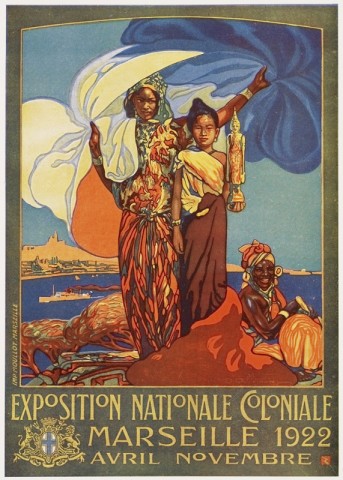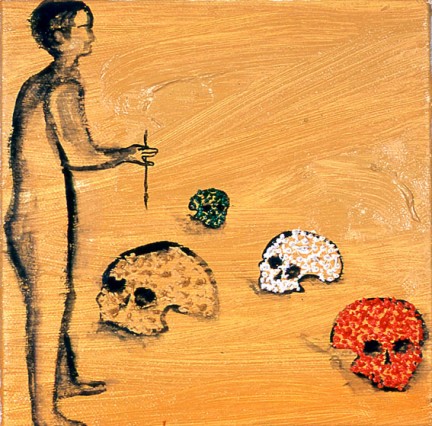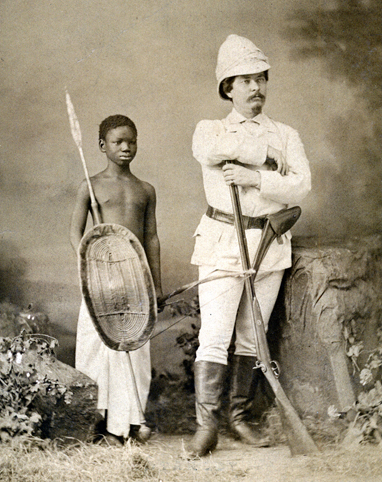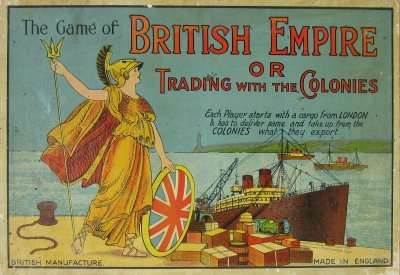
I am always struck by how common the refusal to question. This has come up recently with a sort of mini- war in the media regards conspiracy and the Boston Marathon Bombing.
Rachel Maddow, the branded “out” lesbian liberal at MSNBC, established clearly that she knows who signs her paychecks. (see below).
The Gay Pride parade announced that this year’s Grand Marshall was Bradley Manning, only to very quickly announce that no, that was a mistake and the perpetrator of said mistake was being disciplined. No word yet on who Bud Light and the other corporate sponsors DO want as Grand Marshall. I was reading a number of responses at a number of places on the topic of the withdrawal of Manning as symbolic head of this, now, rather tawdry spectacle of branded homosexuality. Much of it from the *gay community*. And it went something like…”what has Manning ever done for the LGBT community, anyway”? I’ve been pondering that because it cuts to the essence of the problem of identity politics. I mean, I don’t know, revealing torture and war crimes seems to be doing something FOR EVERYONE. But often, everyone is not ME, not MY identity… and so once again we return to the topic of identity.
Then we come to the Speilberg satire “Obama”…har har….made for the White House Correspondent’s Dinner. Har har har…This is perhaps the quintessential moment in the blurring of theatre & politics. It is also the blurring of reality and non reality. Who is more important here, Speilberg or Obama? I think we know the answer. I feel a sort of existential horror overtake me when I try to watch this two minute bit of satire. The sources of this psychic pustule, go back a long ways. Moral seriousness has flown away, on the wings of a culture so infused with the ironic, that a man who orders drone attacks that will almost certainly kill civilians, including children, can be part of a sketch and worse, have a willing audience, ready to lap up a sort of mental fusion cuisine, an ideological parfait and testament to the psychological torpor of today’s mass populace. We are children. That is the message, and it is Maddow’s message, and it the message of 90% of corporate entertainment.
Identity. Children.

It is something else, too. The reflex desire, yearning, to like Obama (or almost any authority figure..though it is more intense in specific cases) is the desire for your father’s approval. For certain, for women, it is paternal approval. They may KNOW Obama is a monster. But Dad’s smile means more, it trumps the horrors of war. This experience of paternal approval is filtered through other prisms of course. It is also a desire to for the ‘other’ father, Speilberg, to have fun. Look, Dad is enjoying himself, having fun, letting his hair down. Isn’t that great…etc. For men, it is much the same, although shot through probably with more ambiguity. It won’t change much, but there is lots of variance in all this. The need for authority to “like” is something I’ve seen every single time I was ever in jail. The chatting with the enemy. Smiling, making jokes with the guards, with the police, with the DA.
So maybe we are children, I don’t know.
Identity.

It is easy to forget the grotesque nature of the colonial project. That *human zoos* were part of every Colonial Exposition from the 1890s to the 1930s. Even the United States participated, desperate to belong to the club of Empire. The exhibition of 1931 included a diorama of Mt.Vernon and Washington’s bedroom — all of which seems strangely dysfunctional in a way. But this is not so long ago, between the Great Wars, when such hymns to Empire were hugely popular, and millions walked the grounds able to view these ‘human zoos’…so advertised, with Negro Villages, *real* Congo crafts factories, and Indo-Chinese teenagers dancing *native* dances, a real Hindu temple, or learn how native workers harvested sugar (well, not the part where they had to wear iron masks lest they sneak a bite of cane, or the pouring of burning sugar down their backs).


http://youtu.be/15jHmo91tgg
This is how people receive their information, via I.V. feedings of snark — the tone here is one that formally was reserved for game shows, but is increasingly the tone of the master discourse. Mainlining snark.
One aspect of the Maddow rant is that she is praising the “accessibility” of these books…well, one book and one COMIC book…er….Graphic Novel. Accessible is code for childish. I mean who the fuck needs one of those big ol’boring books with a lot fifty cent words in them. Accessible. What does that mean? Does it mean anything beyond childish? Infantile? I don’t know.
Here is Mira Kamdar writing on the 1931 Colonial Exposition:
“The only non-European nation present was the United States—presumably delighted to be considered a colonial power in 1931. The US pavilion featured a reproduction of George Washington’s house at Mount Vernon, which was supposed to showcase the American colonies of Puerto Rico, the Virgin Islands, Samoa, Alaska and Hawaii. (The latter two were not yet states of the union.) French visitors were thrilled to find in the faux Mount Vernon a bedroom outfitted for General Lafayette, ally of the American revolutionary forces. The irony of a former colony that had successfully fought for its independence from British colonial rule exhibiting at an international fair dedicated to the virtues of empire—and paying homage to the French general who helped them fight the British—was lost on both the French and the Americans. Nor was the American pavilion meant to inspire the French to come to the aid of any other British colonies, least of all India, which might wish independence. The French had managed to cling to a few small territories of their own in India after their defeat there by the British at the end of the Seven Years’ War in 1763. The French possessions were Pondicherry and Karikal in what is now Tamil Nadu, Chandernagor in what is now West Bengal, Mahé in what is now Kerala and Yanaon in what is now Bihar. They would not give these territories up until after India’s independence. But, more than a threat to France’s tiny possessions in India, Gandhi’s movement was an affront to an empire that, while not quite as great as the one on which the sun never set, saw itself on the side of the conqueror rather than the conquered. The last thing France wanted was for Gandhi to inspire colonised subjects in Indochina or North Africa to embark on similar quests.
French fear of India’s potential to lay low the British Empire was fanned by hysterical articles filled with overtly racist views on European superiority and misinformation about India and India’s independence movement. The 23 September 1931 issue of VU magazine, published just after Gandhi landed in Marseilles, carried a lead article by Edouard Helsfy entitled ‘Why the British Will Lose India’, which warned French readers that India’s bid for independence represented nothing less than a threat to the fate of the West. Deploying a rhetorical bombast that still finds great favour among contemporary prophets of civilisational doom, Helsfy declared that Britain’s loss of India would be “grave, very grave, not only because it [England] cannot lose India without shaking up our colonial empire, but still and above all because old England, as we have known it, represented one of the major pillars of the whole of Western civilisation.”
The problem, according to Helsfy, was one of simple demographics: women outnumbered men in Britain, creating a growing population of old maids. “Do you know what an English spinster is?” Helsfy asked. “There is nothing more fantastical, more enthusiastic, more chimerical and, above all, more gullible. They are charmed by idealism and unreason. Yet, ten or twelve years ago, like all English women, two or three million spinsters became voters. What’s more, for the most part they are angry voters.… For the past ten years, these millions of old girls govern England absolutely.” (France did not give its women the right to vote until 1944.) Real men, Helsfy argued, could govern India’s hordes without much trouble—but the British had gone “soft”. The Indians, Helsfy continued, in a litany of tired arguments for European dominance, were like children; they were physically weak because they didn’t eat meat and most of them were born into abject poverty; they were divided by a multitude of different languages and by religion. The English had bettered Indians’ lives immensely by building railroads and schools and improving sanitation—and what did they have to show for it? An ungrateful, uppity population.”

I will quote Gyan Prakash here, too:
“With the help of the Idea, the ugly facts of conquest can be tucked away from sight. We encountered this recently during the Iraq War. While the American invasion and occupation consumed more than 100,000 Iraqi lives, the ideologues implored us to keep our eyes on the supposed benefit. Niall Ferguson, the Harvard historian, encouraged the American establishment to perform its imperial role, drawing its attention to the record of the British Empire and extolling it for bestowing the gift of progress to the colonies. Christopher Hitchens, an erstwhile radical and raconteur, was also seduced by the Idea. He cosied up to American neocon ideologues and policy makers and offered full-throated support for the invasion. Not that George Bush and Dick Cheney needed encouragement in bludgeoning Baghdad. The “War on Terror” had already prepared the ground for a trumped-up case against Saddam Hussein. Critics charged that no “unselfish belief” stood behind the war. The US dressed up the war in lofty language to conceal something altogether crass—reiteration of American hegemony, control of the Iraqi oilfields, and removal of a counterforce to Israel. But that is precisely the point; what redeemed these vulgar motives and the carnage of the invasion in the eyes of the neocon ideologues was the goal of asserting the power and values of a US-led Western coalition. So much so that they were prepared to—and did—massage intelligence reports and lie to the UN. The “War on Terror” was a cynical ploy because the invaders knew, thanks to the anti-colonial legacy and anti-war mobilisation, that outright conquest without justification was not an option. The Idea was crucial.”

The idea, the notion of progress, domination, is the currency of the Spectacle of Empire and it has, over the last sixty or so years. merged with corporate take over of media, and the ascension of marketing. Electronic media infuses daily life in the West — and within this structural truth can be seen the constant reiterating of certain themes. Most pronounced is the idea of white superiority– whether liberal or reactionary, the message is the same. Paternalistically or fascistically, the West is there to control the less developed peoples of the world. The petty used car salesmen of empire, Maddow or Brokow, or Chris Mathews or Speilberg, create and re-create the same story. And that story is *White Male Power is natural, it is not ideological, it is simply Universal Law*.

Glenn Greenwald wrote a nice piece on the Gay Pride/Bradley Manning affair:
“News reports yesterday indicated that Bradley Manning, widely known to be gay, had been selected to be one of the Grand Marshals of the annual San Francisco gay pride parade, named by the LGBT Pride Celebration Committee. When the predictable backlash instantly ensued, the president of the Board of SF Pride, Lisa L Williams, quickly capitulated, issuing a cowardly, imperious statement that has to be read to be believed.
Williams proclaimed that “Manning will not be a grand marshal in this year’s San Francisco Pride celebration” and termed his selection “a mistake”. She blamed it all on a “staff person” who prematurely made the announcement based on a preliminary vote, and she assures us all that the culprit “has been disciplined”: disciplined. She then accuses Manning of “actions which placed in harms way [sic] the lives of our men and women in uniform”: a substance-free falsehood originally spread by top US military officials which has since been decisively and extensively debunked, even by some government officials (indeed, it’s the US government itself, not Manning, that is guilty of “actions which placed in harms way the lives of our men and women in uniform”). And then, in my favorite part of her statement, Williams decreed to all organization members that “even the hint of support” for Manning’s actions – even the hint – “will not be tolerated by the leadership of San Francisco Pride”. Will not be tolerated.”
and further….
” the authoritarian, state-and-military-revering mentality pervading Williams’ statement is striking. It isn’t just the imperious decree that “even a hint of support” for Manning “will not be tolerated”, though that is certainly creepy. Nor is it the weird announcement that the wrongdoer “has been disciplined”. Even worse is the mindless embrace of the baseless claims of US military officials (that Manning “placed in harms way the lives of our men and women in uniform”) along with the supremely authoritarian view that any actions barred by the state are, ipso facto, ignoble and wrong. Conduct can be illegal and yet still be noble and commendable: see, for instance, Daniel Ellsberg, or most of the leaders of the civil rights movement in the US. Indeed, acts of civil disobedience and conscience by people who risk their own interests to battle injustices are often the most commendable acts. Equating illegal behavior with ignominious behavior is the defining mentality of an authoritarian – and is particularly notable coming from what was once viewed as a bastion of liberal dissent.”
Lisa Williams of course worked for the Obama campaign, so her reaction is hardly surprising. But what is worth focusing on here is the through line from Speilberg, to Lisa Williams at Gay Pride, to Maddow. The co-opting of liberalism never took place because it didn’t have to. Thus it has always been. And identity politics; gay rights in this case, are steadfastly in the service of Empire. Cue Josephine Baker and Le Danse Sauvage.

The world hierarchy of power — the system that perpetuates the same values that created those human zoos, creates Speilberg’s satire (sic) and brands Maddow as “left liberal”. The men who built those ‘authentic negro villages’ in Paris and Marseille and elsewhere, now order the building of sets on the back lot at Paramount, or sit in air conditioned offices in Century City and green light reality cop shows or order another ten episodes of Blue Bloods. The sit on congressional panels and in offices in Washington, or in board rooms on Madison Avenue.

Col. Stanley, in Africa, 1872
Those “negro villages”, those “authentic Congo workers”, on display in the Exhibition Hall in Paris, or London, or Stuttgart, took place less around 80 some years ago. My father could have gone and seen that.
That was NOT long ago. One of the features of forgetting history is to make all history seem distant. Something that happend last year is relegated to the vast dust bin of history, alongside ancient Rome, or Attila the Hun, or Thomas Jefferson. Television creates “That 70s Show”…a piece of nostalgia kitsch that traffics in style codes from what is, really, the very very recent past.

Hillary Clinton, Africa, 2012
I continue to insist on the importance of culture and of aeshtetic education. One has to be able to ‘read’ the images of Empire, has to know, to feel, the odious horror lurking as backdrop to the Speilberg satire. One must see the racism. But more, see the smug sadism of power. Oh, ha ha ha, I have big ears…..chortle, chuckle….but then one remembers Boston in total lockdown, and one remembers SWAT teams shooting another unarmed black man, and one remembers the bodies of children pulled from charred rubble after another drone strike. You can read this brutal ruthless arrogance in the faces of Empire, in Obama or Netanyahu, or any of the Joint Chiefs of Staff, as you could in Franco or Mussolini, or Bush or Hillary. But one must learn to read it when it is mildly camouflaged serving as backdrop, or off screen or off stage referent. For it is sadistic, but it is insane as well.
I often, when teaching aesthetics or film theory, or writing, try to ask students to see what is in Bresson or Bunuel or Godard — in the image, the sense of duration in a shot, or in the pace — what is it that feels human and not vicious and robotic. What is different from a studio project. One must know the sentimental is only a form of sadism…or that kitsch cliches are the husks of an ideology of domination. Snark is what you see in Maddow. The latent Snark is there in the first seconds of listening to Speilberg in the clip above. The Empire has no worries. What is it in the line of the mouth, the outline of complacent and self satisfied power. It means learning that emotions are manipulated. Crying means nothing. You can cry at the worst crap, the worst melodrama, that doesn’t elevate it. You can laugh …but laughter is pernicious. I find the laughter of the post modern west to teeter on the edge of hysteria. Is it laughing or crying? Often I cannot tell. Laughter is intertwined with cruelty. But also with compassion. Noting the balance is important…Richard Pryor is getting a different laugh than Speilberg’s satire with Obama. These are subtle things, however. I have caught myself laughing, only to stop…thinking, feeling, this is maybe not funny, so what AM I laughing at? Aesthetics form a complex of awareness that allows one to continue a form of intellectual curiosity. It forms a set of psychic signposts — it allows an easier recognition of ideological codes. Art is not theory. Art can work with theory, but it also operates on another more almost prehistoric level. A chemical level, probably. And it is exactly the role of kitsch, or marketing and propaganda, to KILL THAT awareness, to eradicate that entire range — the better to put one to sleep. Waking up is bad for business. I have noticed a lot of very smart people, people I know a little, people who I think of as possessing sharp minds; I have noticed the one area many of them suffer deep confusion is art and culture. I think this is because it is not deemed transformational. And I understand this. If you work all day, you dont feel like transformation. You feel like a sort of suspension of self. A blank screen to reflect the blank screen that is you.

Simon of the Desert, 1965, Dr. Luis Bunuel
One cannot find the Obama satire amusing, if one also criticizes drone attacks. For one resides within the other. Or rather, one can, and one can even laugh (perhaps) but not without an attendant shudder of revulsion. Rachel Maddow is simply a brand. She is not a human being. Bill Maher is a brand, even Jon Stewart is a brand. And under the heading *Even a blind Squirrel gathers some nuts*, Stewart and even the others can, on occasion, say the right thing, criticize hypocricies perceptively, but they will not, any of them, step outside the bounds of bourgeois propriety (and values). None will ever say, Obama is a war criminal, the U.S. is destroying lives and lands around the planet. They will still join in ridiculing a Chavez, or Castro, while gently and warmly poking fun at Bill Clinton. Ergo, they are not on your side. Remember, too, that token criticism serves as proof of a democratic press. They are millionaires. They lead lives very distant from most people. They don’t wait in lines, they fly first class, if they fly commercial at all, and they use valet parking. (aside #2: one of the signs of noveau riche pretensions, or just fake specialness, is use of valet parking. I knew people, collecting unemployment….broke….if they went to a party in Hollywood, would use valet parking.)
Culture must be adversarial. If something is popular, becomes popular, one’s first reaction should be distrust. WHY did it become so popular? This is not the same thing as saying only the obscure is of value. It only means, in an Empire of hyper-branding, signs are everything. This was not always true, and even fifty years ago, was not really true. If there is a trigger that affords a particular artwork (product) immediate popularity on a wide scale, then it’s useful to try to define what that trigger might be.

Let me just add an aside here. Niall Ferguson, the reactionary (nay, fascist) historian so popular on TV news shows, wrote this recently:
“Nevertheless, the fact remains that no organisation in history has done more to promote the free movement of goods, capital and labour than the British Empire in the 19th and early 20th centuries. And no organisation has done more to impose Western norms of law, order and governance around the world. For much (though certainly not all) of its history, the British Empire acted as an agency for relatively incorrupt government. Prima facie, there therefore seems a plausible case that empire enhanced global welfare – in other words, was a Good Thing.”
It is hard to believe that anyone who wrote such a grotesquely distorted and morally challenged paragraph would not be only out of work, but sent to seek help from a mental health professional.
When one thinks of Colonialism… the phases of Imperialism — from the conquest of the Americas and the genocide of Native Americans, the ethnic cleansing in Australia, the absolute total genocide in Tazmania, then the Industrial Revolution which expressed itself in the domination of Africa and parts of Asia, which intensified an already thriving slave trade, as well as total subjugation of peoples and the erasure of indigenous culture and community. What Ferguson calls the movement of goods and capital and labor is really movement of goods to an elite class in Europe, and labor is, of course, slave labor. Impose western norms of law….like chopping off the feet of runaway slaves? The list could easily go on. Ferguson concludes empire enhanced global welfare. Only for the ruling class.
Samir Amin:
“Today we see the beginnings of a third wave of devastation of the world by imperialist expansion, encouraged by the collapse of the Soviet system and of the regimes of populist nationalism in the Third World. The objectives of dominant capital are still the same–the control of the expansion of markets, the looting of the earth’s natural resources, the superexploitation of the labor reserves in the periphery–although they are being pursued in conditions that are new and in some respects very different from those that characterized the preceding phase of imperialism. The ideological discourse designed to secure the assent of the peoples of the central Triad (the United States, Western Europe, and Japan) has been refurbished and is now founded on a “duty to intervene” that is supposedly justified by the defense of “democracy,” the “rights of peoples,” and “humanitarianism.” The examples of the double standard are so flagrant that it seems obvious to the Asians and Africans how cynically this language is used. Western opinion, however, has responded to it with as much enthusiasm as it did to the justifications of earlier phases of imperialism.”
Who is on TV the most, Amin or Fergusson? Hahahaha, that’s a joke….hahahahaha…..chuckles…..oh, its Fergusson of course…..(wipes tears of laughter from face)…and he teaches at Harvard for fuck sake. I don’t think Amin has ever been on network TV news. Niall Fergusson, the man who thinks Empire was good, Imperialism is good, Colonialism instilled discipline and legal norms….yes…he TEACHES AT HARVARD.
He is the celebrity historian du jour. The trains ran on time.
So, it is time to question even the most offhand remark. And to sensitize onself firstly to the narrative of the state, and once digested, to look for corrections. More on that topic I hope next posting.
Here is a footnote for Maddow:
http://www.salon.com/2012/06/19/new_nsa_docs_reveal_911_truths/


So so much to say but just want to contribute this from the colorofchange mailing list:
From: Rashad Robinson, ColorOfChange.org
Date: 27 April 2013 17:36
Subject: The ad FOX doesn’t want you to see
To: Molly Klein
Dear Molly,
I’m stunned.
I was planning to email you today to tell you about the next step in our campaign to convince FOX to drop the television program COPS. We were going to unveil ads to be placed in The Hollywood Reporter and AdWeek calling on advertisers to pull their support of the program.
But before I could, AdWeek and The Hollywood Reporter rejected our ads.
Trade publications like AdWeek and The Hollywood Reporter are delivered weekly to Hollywood executives and potential advertisers and we need to get this into as many other publications as we can before FOX executives meet in May to announce which shows get renewed for next season. Will you join us?
Please click here to contribute $15 today to help us keep pushing FOX and its advertisers to stop profiting from a reality that’s so costly for the Black community.
Nothing in our ad was lewd or profane, it simply told the truth about how media have profited from the dehumanization and over-incarceration of Black people. The rejection of our ad by two notable media outlets makes it clear how powerful the corporate forces we’re up against are.
Research has shown that programs like COPS create warped perceptions of Black folks and communities of color1 and the criminal justice system.2 This relic should have never made it to air — let alone survived for 25 years.
The truth is that for 25 years COPS has glorified the failed “War on Drugs” by taking viewers on a ride-along with officers as they patrol and harass people in low income neighborhoods across the country. COPS has turned the criminalization of Black folks and other communities of color into entertainment for millions — all while lining the pockets of Fox with advertising dollars.
This rejection shows us how much harder we have to work to get FOX to drop COPS. We are committed to spreading our ads far and wide — until the only thing that gets rejected is COPS.
Please click here to contribute $15 today to help us turn up the heat on FOX and its advertisers.
Thanks and Peace,
–Rashad
April 27th, 2013
P.S. We need to turn up the heat ahead of the network upfronts next month, which is when the networks and advertisers will be making a lot of their big decisions. Please click here to contribute $15 and help us get these ads out to let them know how toxic COPS is for our community.
References
1. “Opportunity for Black Men and Boys: Public Opinion, Media Depictions, and Media Consumption” (.pdf), The Opportunity Agenda, 10-01-11
http://act.colorofchange.org/go/2114?t=6&akid=2911.1484143.HqZJR7
2. “How television influences social institutions: the case of policing and criminal justice,” Aaron Doyle, 10-01-00
http://act.colorofchange.org/go/2356?t=8&akid=2911.1484143.HqZJR7
the rachel maddow thing is as wild as that spielberg. my brain hurts.
my conspiracy theory for today is this:
http://inthesetimes.com/article/14873/lean_socialist/
Bhaskar Sunkara and his Jacobin mag’s role for the dems is to hang with and “talk down” the mark (downwardly mobile middle class youth) when the Obama con was revealed.
People are afraid, it’s true. Paradoxically people are too afraid to take the steps to avoid the danger that approaches — a version of the return of the repressed. It’s like throwing up – the anticipation is worse than the actual purgation.
Art requires risk, entails wounding. People lose faith in its necessity. And, of course, art makes people feel inadequate. The practice entails direct engagement with what one fears most in oneself and by in large people are inclined to avoid all that. The lie of security it so seductive.
All of which is to say, great post.
Will attempt more of a response a bit later…
GZ
This Speilberg piece reminds me of the last academy awards. Nicholson hands off the envelope to none other than Michelle Obama on the big screen. She gives an empty speech basically claiming all the nominees have state approval. It was an eerie feeling. Watching the already bloated and boring show be taken to a new realm of authority worship. As if power itself became the art. Also similar to the faux art of Abramovic. Cool piece.
my first comment is “awaiting moderation”
But but but let me ask. Our world has arrived via the very art that was shuypposed to check these tendencies. We had that art, and here we are. What was Stephen Spielberg’s aesthetic education? It was better than that of culture workers whose environment was full of Spielberg’s own work. How did he appear and ebcome what he is? Can we really believe what came before as the elite pridyct – those works that are studied in universities (thousands upon tens of thousands of papers and dissertations on Beckett, as problematic a white supremacist as Josephine Baker surely), was entirely innocent of producing its future? Jameson wants us to believe this sentimental/sadistic shit that studios churn out now expresses profoundly humanity’s genuine desires for “utopia”, that the audience that becomes addicted to this is responsible for it – the appetite precedes the production. I get the theory of the modernist work that is meant to disrupt the legitimacy of the ruling class etc; that the fact that it is challenging, disquieting, not gratifying and consoling, alone is intended to have a salubrious political and psychological effect. I am just not sure this is nborne out by the history of our art productoon and consumption. It seems that the disquieting and the difficult can serve the agents of the human zoos also – the details matter. Not so much that it aligns right/left commitments but that perhaps even the category of art is problematic, the questions about its social impact invalid just as it would be about “speech”.
@jack lit:
Yes, i think power is now the art in a sense. Or the product, the aesthetic product, or maybe its more appropriate to describe it as the worship of the producer — the owner of the system, or the means of production. But this is where it feels as though we have taken a qualitative step since Bush and Clinton et al. Obama has really been a total triumph of marketing. When i see the Speilberg satire I cant help but sense that speilberg is the focus, not Obama. He is playing daniel day lewis…har har har. But…still, he is being identified as the actor in this spectacle. The white house is just a big studio.
@molly.
“we had that art and here we are”. Well, art didnt produce where we are did it? seems like there are a lot of other factors involved, obviously. One thing, maybe minor and maybe not, is the rise of marketing (and its why Century of the Self is so good I think).. But in any event, the avant garde was a reaction to the conformist product being, increasingly, given the imprimatur of importance by institutional authority. The rise of several related avante gardes (sic) looked to work as corrective I suppose, partly. But also just to do culturally what wasn’t being done, increasingly, but ever more widely disseminated cultural product. This was that weird moment at the start of the 19th century (maybe the mid 19th, i dont know) when art was being democratized. More people had more leisure time to consume product. We are speaking of the west here. Its tricky because modernism itself was seen as a radical critique somehow of a paralysed classicism.(this is the early 19th century)….it was champion of change….and here is where its roots in this enlightenment set of values is clear. So, insofar as modernism is linked to those values, then the seeds of Speilberg reside within it, yes. But nothing is one dimensional. Also residing within, and as part of this same set of values, was a sort of commitment to the future, to the idea of “future”. And within that project were very radical utopian dreams of social awakening, social change, etc.
There was a certain branch of avant garde, that is connected to Saint-Simon, to revolutionary political utopianism. The point is, I think, that however one critiques art, say, up to the early 20th century, when mass media became a factor — and then mid century more acutely — the rise of fascism, of the start of financialized capital, post WW2….all the seeds of this orwellian electronic propaganda machine, linked to corporate trans national capital, to globalization (a product of this) began to eclipse culture per se. I think you create this straw man, by suggesting art was meant to prevent these forces. It has never done that. I dont think anyone believes that, unless they are deeply deluded. BUT………I do think the disquieting disruptive aspects served to awaken and not put to sleep. They served as part of a cultural revolution, say, aimed at transformation of traditional culture.
“…certain periods of highest development of art stand in no direct connection with the general development of society, nor with the material base and the skeleton structure of its organization.” Marx
Art served, at its best, to establish a relationship with an oppressive political system. It helped posit this as a question. That question is erased with speilberg and today’s corporate hegemony of the arts and discourse. Might this work serve the agents of domination? I am sure , I think, but not that often, no. (and how is beckett a white supremicist? I may regret asking that question…..and I dont find it all that germane to this issue anyway…..but ???)..
marcuse said ” (art) is the effort to find forms of communication that may break the oppressive rule of the established language and images which have long since become a means of domination, indoctrination, and deception.”
Handke said “the loathsome untruth of seriousness in play”. He was attacking bougeois structures of art, more than content …the way in which Kleist or shakespeare or beckett (!) could be presented in a compromised institutional form….rendered illegible, silent. But per adorno, Marcuse said the aesthetic form creates its own universe of seriousness, which is in opposition ….or is the negation of given reality.
Now the problem here is that we are talking about the west…about a privileged west. But, I think even marx valued the cultural realm. For aesthetic education, and resistance serves to negate the discourse of power. Of totalitarian Speilberg and Obama and Michelle at the oscars, and the oscars itself, and this entire suffocating blanket of image and style and grammar. Artaud said the theatre was there to teach us we are not free. So i would suggest that without it, if it is to be implicated in this new fascism, then we might as well give up talking and listening, and just go…I dont know, tend to the carrots and beets and hope monsanto doesnt come rip them from the ground.
“Well, art didnt produce where we are did it? seems like there are a lot of other factors involved, obviously.”
Our hope is that art and culture war is effective, that it is not just effect of other relations but productive of them – productive of intelligence, empowerment, understanding, morality, benevolence…This is our hope for art, isn’t it?
and i should have started with thanks, I agree about the big change being the era of mass electronic/broadcast media.
well, it is our hope. I mean I believe it does. In fact, i was thinking recently, lately , that I think many of us, or most of us, are starting to forget how that feels. I think the suffocating horrid repetition of this same sort of reactionary white man militarism, this snark, this faux feminism, faux equality, has started to really wear away at the psyche. I mean its numbing. I think we are all increasingly a bit numbed. I get that feeling ….that aural deadening sometimes….where the world me sounds a touch muffled…..and i think there is an image equivalent to that as well, that is more pernicious because i cant quite identify what it is doing to me.
Honestly, I think the creation of what is not here……that sort of creation of idealized dreams………a sense of other than here now……is important but we are so without it now. The negation of the negation………right? .. but also just that genuinely disruptive narrative somehow that allows for inner life because i increasingly get the sense mine is shrivelling up somehow. This addiction to screens, to constant-ness…..the need for a fullness that is only a sort of constant-ness, of something, anything.
“We are children. That is the message..” But of course most of us ARE children…and furthermore actively avoiding anything that would force us to rise from this identity. Is it a leader’s fault that they are able to exploit us so completely? Is it popular culture’s fault that we furtively suckle at it like small, helpless animals? “The fault, dear Brutus, is not in our stars, But in ourselves, that we are underlings.”
As cogent an explanation why I have to watch that Noam Chomsky on the Sunday Morning talk shows every week instead of a real ‘maverick’ like John McCain…
It does seem that the most adult-ish (authoritarian) talk heard on MSM is when we are scolded to “act like the children” that we are.
Excellent piece. Recently, I have been digging up the old UN Declaration of Human Rights and the Rome Statute: Obama clearly, clearly unequivocally qualifies for a ‘third candidacy’ as a candidate for prosecution. The problem: well, it is as you outlined brilliantly above, the structures and discourse, along with the psychosocial stratums that incase them, make implicating anyone in the US Administration almost next to impossible.
On Bradley Manning, it is a desperate shame that he has been removed. However, as a Queer, anti-mainstream gay community activist, I am not at all surprised. The reactionary element of the ‘gay community’ has always been opposed to the more radical elements ‘Queer people’ – we are often the voices in the wilderness of Absolut Vodka PRIDE and Levi PRIDE and Bud Light PRIDE and Coors PRIDE (and why all of this alcohol? Drinking ourselves out of Shame?) Anyways… it goes on…
In my opinion, Rachel has a point about Alex Jones nuttery. He is absolutely insane. And the ‘false flag’ theories being exploited all the time, makes the actual research, as for instance the real conspiracy of the Gulf of Tonkin, much more difficult. Jones is totally anti-government for his own paranoid reasons. Research should not be clouded by Jones inane, insane and risible disgustingness.
Also, I must add, Rachel is correct to tackle the right’s Islamophobia. O’Reilly is INSANE… I mean Maddow is making really correct points, I don’t understand the critique here as I watch her video?
Dear Mr. Steppling:
I’ve been browsing your blog lately and have found myself engaged by much of what you have to say regarding imperialism and the ills of contemporary Anglo-Saxon society. A more in depth post on that topic shall be forthcoming.
With that said, I came across your conversation/exchange regarding Andrew Sarris on Gunfighter Nation and wanted to chime in but wasn’t sure whether or not the comment would get noticed over there, since that post seems to be a few years old. Sorry, but I didn’t know where else to pose this question. Thanks.
Regards,
Remy
@eilif:
But see, you are sort of falling victim to the same conflating that maddow herself creates…….alex jones IS a nut case, and in fact it wouldnt surprise me he was some weird psy-ops for the state dept. Because in effect, as you rightly say, he discredits genuine journalism. BUT…but but but…..Maddow is NOT really saying, oh, alex jones discredits genuine investigative journalism…no she is saying, oh, the US govt report on 9 11 is great reading and all those conspiracy freaks are being debunked by Popular Mechanics (sic). She in a subtle way conflates real journalism with alex jones. And in fact, the unfortunate part is, jones is always about 40% true. So is makes it all the more difficult to address government cover ups, of which there are many. Her use of the term “conspiracy theorists” is itself dishonest — as if anyone who saw contradictions in the state’s version of 9 11 was akin to a frothing loon with emotional problems (alex jones etc). Or anyone who might reasonably question a lot of official versions of events is immediately associated with the Jones people.
For some weird reason, a certain educated liberal class (well, maybe its not weird at all) want to defend Maddow. She reflects an urbane sophisticated hippness…thats her brand…and never mind she supports “humanitarian intervention” and will discredit a Chavez or Morales….in the name of this soothing real politk, the mature reasonable tone of the educated classes. PLUS she is an out lesbian which completes this branding. I find her every bit as dishonest as bill o Reilly. I mean FOX news is the bastion of the uneducated white male. Its resentful and paranoid and misogynistic and racist. Maddow is only an Imperialist. Except that within that sort of faux feminism lies this deeply reactionary discrediting of real opposition. I mean O reilly and the rest are simply the raging lunacy of cracker america. I cant imagine anyone with even a room temperature IQ would take them seriously…..which is not to say they arent harmful-. — but….An honest journalist would NOT support the govt version of 9 11 for christ sake (as maddow does). They would not ridicule the so called “conspiracy theorists” by lumping them into one fetid basket with alex jones. Its really in very bad faith. This is how one must learn to read media in my humble opinion……… for what she does is, in a very real sense, exactly what a Zizek does. It is to conflate certain things, to create these false oppositions, and then through either innuendo or snark, indict radical voices. Its this club of hippness.. She creates identification with her brand. I mean Naomi Klein for example is not really a radical. She is however a very good journalist…as is a glenn greenwald …..and both are clear when they indict the crimes of empire. There is no snark, no irony, no sarcasm. Maddow is a corporate talking head. She is a brand. And as such…she reflects in the end the ideology of those corporations. Its an interesting discussion on one level, because it brings up this total enclosure we all reside in….and the referents end up being fox news or MSNBC…..and the dialogue is sidetracked into some competing fan club popularity contest instead of the actual events. The news becomes brand.
I like This detergent and not THAT one.
@ Remy………yeah, god, that was a while ago……….but feel free to ask about sarris. And mr steppling was my father. Just John works fine.
Indeed, John, I see your analysis of Maddow as rather solid. I would disagree that she is ‘as bad as’ Bill O’Reilly – because that just makes the acid in stomach come to throat – liberal cosmopolitan-ist that I am, or whatever we call it, I admire Maddow. She did a lot of HIV/AIDs anti-discrimination work, and comes from a strangely humble background. Her phd thesis is about gay men with HIV in the prison system. She is a dynamic figure, although she has definitely shifted her positioning, however, I think this is strategic. Her snark is another issue, one that I currently have no comment on. But I in no way think she could be compared to either Zizek (a Stalinist) or O’Reilly (a Rabid Right-Wing Nut). Now, let me agree with you: She works for General Electric, the company that owns MSNBC, and whilst she says that her contract allows for complete editorial freedom, I doubt that is the truth. Someone might ‘debunk’ the myth about Maddow’s ostensibly generous
intellectual contract. I don’t think she is an imperialist – as her book Drift clearly, clearly attacks the structures of the Military Industrial Complex. She is a liberal, she is a lesbian, she is a person, she has emotions and feelings and she is often very good at taking on racists, far-right rhetoric etc…. However, she does – in the instance above – conflate people who question the motives and persons behind 9/11 with the insane Alex Jones and his groupies, which is unfortunate and actually not good journalism. Naomi Klein is a good journalist and wouldn’t have these opaque and conflated contusion-confusions. I agree.
Relating to Sarris and the whole issue of a film canon, discernment seems to be undervalued in a ‘post-modern cinephile’ community that prizes ‘eclecticism’ and ‘exploration’ above all else. I’m not referring to 20 year-old USC film students per se but rather to what I perceive as holier than thou relativist ‘film lovers’ worshipping at the altar of every new film from Taiwan or Thailand provided it doesn’t exceed the $1 million mark at the US box-office. They’re the disciples of overly permissive film critics like Jonathan Rosenbaum. Granted, I do respect Rosenbaum on occassion, but his interests seem to be spread almost so far and wide as to dilute the desired effect of any positive sentiments he has to express on any given film. So I’m wondering what you’re take is on the school of thought that cinema’s as robust as it ever was but that one simply needs to seek things out from all corners of the globe. What are your sentiments with respect to figures, such as Ceylan Tsai Ming-liang, Hou Hsiao-Hsen, Weerasethakul, Pedro Costa, Carlos Reygadas, Lisandro Alonso, Jia Zhang-Ke, Hong Sangsoo, Bela Tarr, et al.?
I’m not implying they’re necessarily bad filmmakers, but I disapprove and often find myself suspicious of the circumstances under which such figures seem to be praised. Any film from a non-Western country that doesn’t appeal to wide audience seems to get a pass. I often find whenever I attempt to be discerning with respect to some of the aforementioned filmmakers I’m dismissed as combative or as a philistine for proposing Colossal Youth or Goodbye South, Goodbye may have some merits, but “they ain’t Au Hasard Balthazar, L’Avventura, or even 2 or 3 Things I Know About Her goddamit.” I feel it relates to your overarching sentiment about this reluctance to question things in our society. If there are no discriminatory standards by which to judge art without being dismissed as a combative idealistic Romantic then what incentive is there to even strive to create great art in the first place? Granted, these are just my personal sentiments on the aforementioned films and filmmakers.
On a side note, what are your feelings on filmmakers like Rohmer, Rivette, Pialat, Chantal Akerman, Cocteau, Jean Vigo, and Eustache, all of whom I admire? There are times I attempt to create a film canon of my own, and as I find myself finalizing a list of filmmakers I’ll then remember the numerous seminal single films by directors who I would otherwise consider secondary. Examples include 8 1/2, The 400 Blows, Walkabout, Before the Revolution, and others I’m sure. Anyway, my thoughts are a bit jumbled as it’s nearly midnight, and I’m my way to bed, but I do look forward to having further discussion.
Oh, and I’ll add Kiarostami and Tati to the list of filmmakers I admire who I’m curious to hear your thoughts on.
@remy………wow, quite a list. I will try to write something in the near future to touch on a lot of this. Ive had a couple other people discuss some of this, so might be interesting to get into it a bit more. I generally agree with your first statement though. The whole question of “innovative” is quite worth discussing because Im not sure that anyone who uses that word has any idea exactly what they mean. I remember in alan sharp’s script for Nightmoves, the detective is invited to a screening of the new Rohmer film and he says. “i went to a rohmer once, was like watching paint dry”. Id co sign that.
But Sarris was the bible for cinephiles back in the 70s in New York and we didnt much care he was stealing from Cashiers…..it was a valuable critical guide at the time.
@eilif:
well…..I dont want to use up too much cyber ink on maddow…..but will only add a couple thoughts. She reminds me of jon stewart in a way. They often say very good things…no question. She has brought up the corruption of private prisons recently, and that’s very good. And she said good things at first against NDAA. But it is always within a context that posits a reformist liberal view. Meaning….that context means never having to question the foundational causes of this injustice. So of course her positions are less odious than O reilly or whoever, but it is just this sort of very bright and lucid liberalism that enables the idea of electoral reform as a viable option for social change. I personally found her segment on chavez pretty depressing, but then that was the case with 99% of the western press. Like stewart, Maddow is worth upwards of ten million dollars. You have to wonder at this…….at least I do. I mean, morally, I couldnt live with myself if i had a bank account in the millions. I couldnt. Id be building community gardens and organizing daily with whoever i could find to provide housing and free medical clinics , whatever. There is a real issue about class, here. Im criticized for this position, a lot, but Ive not ever found people with that level of privilege who didnt value getting it and keeping it.
Anyway, when i compare her to a degree with a zizek, its in the structural sense, its in the shape of their rhetoric. And….and, zizek is seen as a marxist….a Lacanian….but most clearly as a “leftist” intellectual. And then he will proceed to tell you the feminists are the ones who are really misogynist, and black thinkers need to be more racist to be …well….not so racist. Etc. So i find maddow glib, articulate, and certainly telegenic. But also very very compromised both by her contract , no doubt, but also I suspect (humble beginnings notwithstanding) by her wealth. These are the salves of the educated but unemployed masses these days. …these sort of op eds that do in fact target worthy issues…..but never stepping outside a binary platform of the bad guys (republicans) and good guys (democrats)…..and maddow has not wavered in her support of obama. Nor of Israel. And while its easy enough to beat up on morons like rand paul, it is impossible on corporate network TV to anything but prop up the status quo. And thats what she does, effectively.
But yes, she serves a useful purpose by making visible certain issues on occasion. She also, however, normalizes a kind of elite liberal condescension. This is to a degree, the snark factor again. She is a successful brand….and thats dangerous.
That all said, I wont argue she doesnt do good segments on occasion, but the real question is the context created — again, this is a giant corporation run by white men who feel no threat from maddow….for if they did, she wouldnt be on the air.
While I see your point regarding Jon Stewart, for instance, being a millionaire, I’d hesitate to dismiss someone purely on the basis of their networth. Keep in mind, Godard and Pasolini both came from wealthy families, and the latter certainly had the economic means throughout his entire life to lead a comfortable bourgeois lifestyle. Also, Balzac, Dickens, Chaplin, and Hitchcock all became very wealthy men on account of their respective artistic contributions, and I doubt anyone would devalue their art simply because it rendered them rich. All I’m saying is if it’s held against Jon Stewart that he’s rich we may as well apply the same standard to Hitchcock or Dickens. I’m not a fan of Jon Stewart, and I entirely agree with your misgivings regarding him and Maddow, but I think we’d be discarding many significant figures throughout history if we judged them merely on their size of their bank accounts.
I’m not holding it against any of the guys I just listed that they were wealthy, but I feel things can potentially get a little dangerous and unfair when bringing a person’s net worth into the equation unless we’re discussing someone in business or finance like Donald Trump or Mark Zuckerberg for instance. It’s a corollary of the “judge the art, not the artist” argument I think.
Granted, Pasolini’s net worth may have still been only a fraction of Jon Stewart’s, even when adjusted for inflation, but, in any case, I still try to simply separate the art from the artist.
I hate to pile on so many comments, and I wish I could consolidate them, but additional thoughts keep coming to me. So with regard to the categories Sarris created, I don’t think they’re particularly useful. Yes, there are filmmakers like Malick and Cassavetes who I simply don’t regard as being important, but to say for instance that John Ford, Hitchcock, Ozu, and Bresson belong in the pantheon, but that Antonioni, Nicholas Ray, Tourneur, or even J-P Melville are merely borderline canon feels misguided to me, because you may be unintentionally dissuading people from watching the best of Antonioni or Ray. This is also partially my misgiving about the Sight and Sound list, that a reader may wrongly conclude the number five film is more worthy of his or her time than the number 43 film. At that level of artistic achievement I feel it all just becomes a matter of personal taste, whether someone prefers Red Desert or A Man Escaped for instance. Would you honestly put someone in the wrong for preferring the former to the latter? Of course, if you prefer The Shining to A Man Escaped then you’re probably just a USC student, and that’s an entirely different situation. Personally, I’ll take In A Lonely Place over anything I’ve seen so far by Ford or Hawks. Then again, I’m young and perhaps I have yet to grow into Ford.
I guess I’m of the belief that all truly great artists are of equal importance. Either you’re a great artist or you’re not. The notion that X and Y are both great, but that X is pantheon while Y is exceptional but doesn’t quite make it can sometimes be useful, but it can also backfire, as you might find yourself throwing the baby out with the bathwater on occasion. Believe me, I feel it necessary to be discerning and discriminatory when judging art, but single films may sometimes get lost in the shuffle when the overall oeuvre of their makers doesn’t compare to that of Ozu or Hitchcock. The 400 Blows, in my opinion, is a perfect example. Understandably, people may hesitate to mention Truffaut in the same sentence as Bresson or even Mizoguchi, but I don’t think that’s enough of a reason to devalue the one or two truly great films he did make. Then again, that’s probably why I often have trouble developing a list of favorite filmmakers, since I tend to focus on single films as opposed to oeuvres as a whole if you know what I mean, but that also probably has to do with my still having much to see.
@remy:
i wont get into , at least here, a discussion of all these various directors. But i will say, sure, sarris was very flawed. HE cribbed a lot of stuff from cashiers and sometimes just verbatim lifted whole paragraphs. But he served to create an context and vocabulary for film aesthetics which was much needed at that point. His placing of various directors in various categories was a way to express a certain set of principles….and he had the virtue of consistency i have to say. Is it inherently absurd to create rankings? yes. But within that consistency he raised an aesthetic awareness…..and forced people to look at guys like nick ray or Raoul Walsh or Sirk in a way that few people had this side of godard and rivette.
as for being a millionaire. Im sure its just my bias. I am. And one person’s wealth is probably the not the same as another (maybe). Granted all that. But…..the celebrity talking head brands of major media …and i think this was my point … are part of a class that exists in a realm of great privilege. That’s all. That’s the system and people sort of take it for granted somehow. The poor have no voice. And if they did, and CBS paid them millions, they soon wouldnt be poor. What does that do or mean? Im not sure. But as a thought experiment, imagine a half hour show from Angola prison each thursday, or from local community organizations, or grassroots groups or community gardens and the people working them. What would that look like ? Might that not be truly radical in some sense? I mean local cable access does this in places but for a limited audience. Very limited. This is the hegemony that you experience to a large degree in distribution, as well. Radical voices are marginalized……invisible. Maddow is still within the comfort zone for the ruling class– so to speak. If she went too far outside that, she’d be fired. There are reasons zizek became popular, reasons maddow is popular, reasons michael parenti ISNT on MSNBC nightly….not that he probably wants to be………but the news is basically an infantile entertainment created to further this narcotizing of the public. And I’m not sure that when a maddow does bring up a genuine issue and she comes down, at least nominally, on the right side of it, that isnt more harmful in a sense than FOX news. There is a dialectic here……the token opposition gets to speak, a bit, in the mildest of tones, without great depth or questioning of the reasons. It serves a release valve….much as NGOs do…..by salving outrage, and defuses organizing that might come. Arundhati Roy wrote a great piece on NGOs a few years ago…..and I think this pertains in related way to media.
http://www.youtube.com/watch?v=3P806v094mk
http://mondediplo.com/2004/11/16roy
My one question though is this? How do we synthesize the establishment’s skepticism towards art with the fact that France, for instance, erected a Pantheon to pay respects to its literary and intellectual figures of the past and that it’s schools are named after people like Balzac and Stendhal? And also add to that the fact that a figure like Robert Bresson could feasibly have a Paris street named after him in the next 50-75 years. I guess I just wonder if such philistinism is highly Anglo-centric in a sense, since Continental cultures tend to have more respect for artists. Granted, it could all just be about co-option and keeping up appearances as was the case when AMPAS gave Godard an honorary Oscar.
The tradition of Americans with intellectual and/or artistic aspirations fleeing to Europe persists to this day largely because they wish to escape the philistinism that plagues American culture. And what bothers me is how everyone who even attempts to pursue such a move in this day and age gets mocked as a Hemingway or Henry Miller wannabe. People will say, “Grow up kid, the 1920’s are over.” It just makes me angry.
Americans tend to assume it was a phenomenon unique to the “Lost Generation” of writers from the 1920s, but no, it persisted after the war as I’m sure you’re aware. The only difference is fewer great writers have emerged since World War II, so it’s not as noticeable. People who did relocate, however, like Orson Welles or Charlie Chaplin simply got flack. One could also point to Miles Davis who toyed with the idea of living the rest of his life in Paris. He returned to the US, however, and I’m not exactly sure why. Eric Dolphy also wanted to settle in Europe, but he died too soon. 🙁
i hate my life